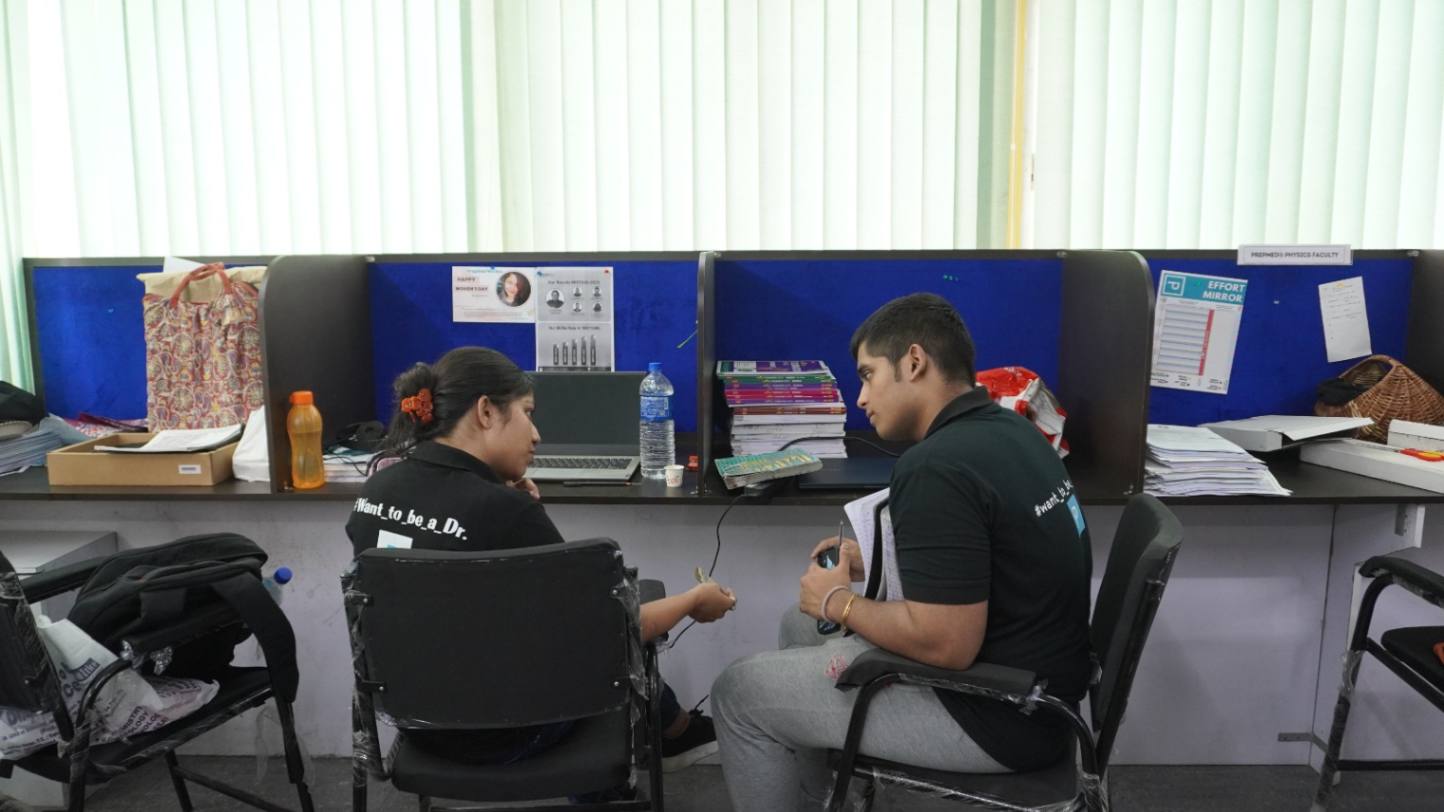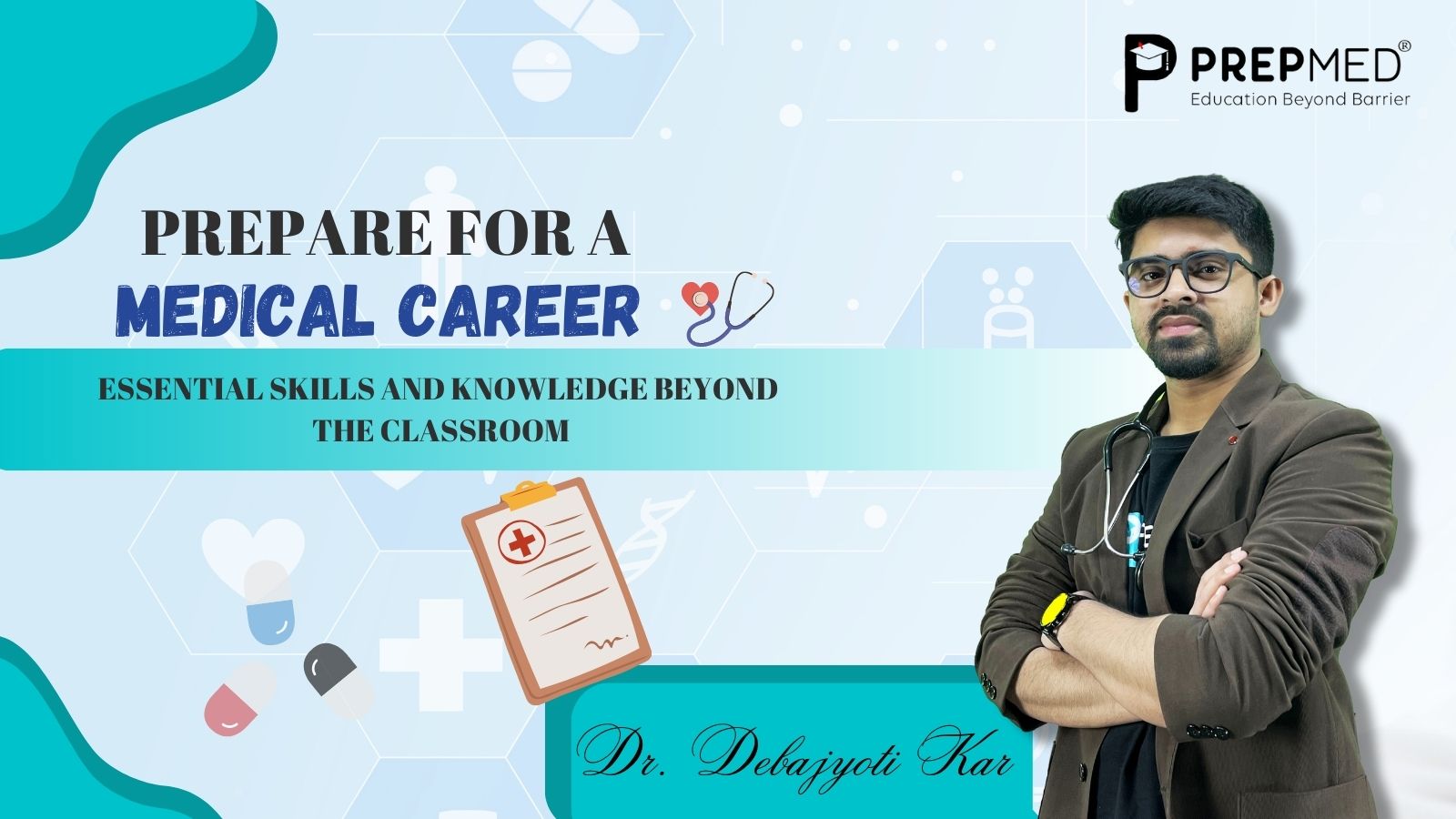September 23, 2024
Preparing for a Medical Career: essential skills and knowledge beyond the classroom
Being a successful doctor means more than just having textbook or clinical knowledge. Just having technical expertise would not count for being a successful and helpful doctor and building a robust medical career. There are a lot more factors that can influence becoming a good doctor. The more the complex disease, the more all-around skills a doctor would need to cure the patient.
Besides having the right technical knowledge to design the right treatment plan, a good doctor must have empathetic skills along with teamwork and logistical expertise for the proper treatment of the patients.
Here we have listed some of the most essential skills and knowledge required by a doctor to be successful beyond the classroom and academics.
Communication Skills

Communicating with patients holds a different importance when building a successful medical career. Compassion and empathy while communicating are two of the most important factors when talking or explaining anything to the patient or their known ones, and even colleagues.
● Although doctors are aware of medical terms, patients or common people are not. They need to communicate in a manner that would simplify the concepts and issues to the patients. They also need to be empathetic and supportive with reassurance for the cure.
● Most doctors need to work in a team that includes other doctors, technicians, nurses, and much more. They need to have effective communication skills, whereby they can clearly and quickly communicate in times of need, an important knowledge beyond classroom studies.
● Communication skills also include writing accurate medical reports. These reports are helpful from both a treatment and legal perspective.
Empathetic and Compassionate
Being empathetic and compassionate towards the emotional and psychological needs of the patients plays an important role in becoming a successful doctor.
● Not every patient and neither every issue is the same. As a result, a doctor needs to be empathetic and understand the pain point from a patient’s perspective to gain trust and operate a better treatment plan.
● Doctors need to deal with distressed or grieving families of the patients regularly. For that, they need to be compassionate and calm, while dealing with the problems properly.
Critical Thinking and Problem Solving
Doctors need to face a lot of different situations and conditions in patients that involve a complex procedure of treatment. For such reasons, doctors must have quick thinking to solve critical problems.
● For diagnosing and solving complex health issues, doctors need skills and knowledge beyond classrooms and textbooks. Studying the symptoms, history of the patient, test results, and other factors helps doctors determine the best course of treatment.
● Thinking outside the box is an important skill for doctors. As mentioned earlier, they need to be prompt yet accurate when it comes to treating rare or complex health conditions.
● Doctors often need to work with limited or incomplete data and devise treatment plans accordingly. Here is when their critical thinking ability plays an essential role.
Time Management
Doctors need to manage time and multitask more often than one can think. Whilst treating patients they need to study and keep updated with the latest innovations in the medical world to build a successful medical career.
● Managing time for high-priority tasks is key for a successful doctor. Be it a critical or emergency case, or be it attending important seminars, time management is key for doctors.
● As a doctor, burning out, and doing multiple tasks simultaneously is a common issue. However, burnout can be minimized by proper time management between several tasks like education, attending to patients, administrative tasks, and much more.
● To handle a particular case with expertise, doctors need to devise proper timelines for treatment, check-ups, and follow-ups for patients.
Self-care and Emotional Strength
As a medical professional, one needs to undergo different situations that include stressful times. Many doctors face conditions whereby they fight for the life and death of patients. As a result, they need to be both mentally and physically resilient.
● Emotional health for doctors is a major issue. Most doctors deal with extremely difficult conditions in their field and hence they need to devise proper coping mechanisms to keep calm and stress-free.
● Doctors need to monitor their mental health when dealing with patients and cases that require compassion. Burnouts are commonplace in the field of medicine and even doctors require therapy at times to maintain mental balance.
● It is also important to maintain a work-life balance. While the profession is important and demanding, as humans, doctors should not forget about their personal lives and relationships.
Conclusion
Doctors need to have a variety of skills and knowledge. Most successful doctors would stress the fact that just textbook knowledge would not be enough to survive this industry. One needs to know about academics to make a name.
With Prepmed, you get constant support and guidance during pre-medical days of preparation beyond just the classroom. Here we develop a human alongside a doctor.
For more details on PrepMed and to find the nearest coaching center, visit PrepMed’s official website
Follow Us - on Facebook /Instagram/ YouTube






